#Maurice Maeterlinck
Explore tagged Tumblr posts
Text
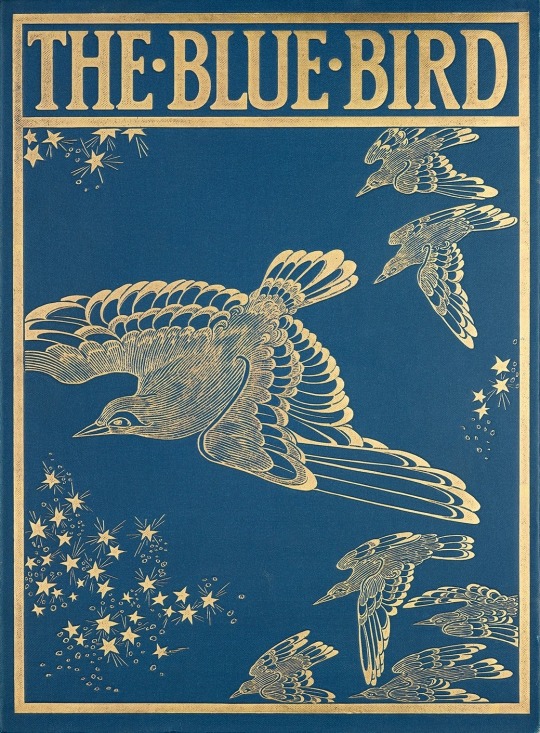
Maurice Maeterlinck, The blue bird (London: Methuen & Co, 1911)
890 notes
·
View notes
Text
The Intelligence of Flowers (L'Intelligence des Fleurs) is a philosophical and poetic work by Maurice Maeterlinck, first published in 1907. In this book, Maeterlinck explores the ways in which flowers exhibit intelligence, adaptability, and purpose, almost as if they possess a will of their own. His reflections extend beyond botany into broader philosophical ideas about nature, destiny, and life.
Here is an excerpt from the book:
> "It is well for us to realize that intelligence is not confined to the narrow sphere in which we are accustomed to find it. It overflows from all sides; it fills the universe. It is as infinite and multifarious as the forms of matter. We, who consider it only in ourselves, see it under a single aspect, because we occupy but one point of space. We recognize it in the beings that resemble us; but everything that is not built upon our plan seems to us to be devoid of it. We have limited and localized it without right or reason. But, if we do not insist that it must have our features in order to be, we shall perceive it at work wherever a form is organizing itself, wherever an effort is persisting, wherever an aim is pursued."
This passage encapsulates Maeterlinck’s central idea: intelligence is not exclusive to humans but is present throughout nature, especially in plants, which display remarkable ingenuity in adapting to their environment.
□□□□□□□□□□□
Maeterlinck discusses how flowers "fight" for survival in a way that suggests a form of intelligence, even though they lack movement or will in the human sense. He describes how plants adapt, compete, and develop strategies to ensure their reproduction and survival. Here is a relevant excerpt from The Intelligence of Flowers:
> "A flower, imprisoned in the soil, incapable of moving, fleeing, or attacking, seems the most inoffensive and helpless creature in nature. Yet, it struggles as fiercely as any animal. It has weapons, tricks, patience, and strategy. It fights against darkness to reach the light, against wind and rain to protect its pollen, against insects that devour it, and sometimes even against other plants that would overshadow it. Its enemies are countless, yet it finds solutions with an ingenuity that we cannot help but admire. Some flowers grow thorns, others produce poisons; some develop forms that trap or repel insects, while others ally with them to ensure their survival. They are warriors in a battle waged silently, without violence, but with an intelligence that is no less remarkable."
This passage captures Maeterlinck’s perspective on how flowers engage in a quiet but relentless struggle for existence. They adapt to threats, compete for resources, and even manipulate their surroundings to thrive. His poetic and philosophical approach invites us to rethink what intelligence really means.
□□□□□□□□□□□
Nobel Prize for Literature in 1911
#Maurice Maeterlinck#lit#flowers#the intelligence of flowers#one of the most beautiful things I have ever read 🪴#🌼 🌼 🌸 🌻 🌹 9
13 notes
·
View notes
Text

THE LIFE OF THE BEE by Maurice Maeterlinck. (New York: Dodd Mead, 1901) Illustrated by Edward J. Detmold. Translated by Alfred Sutro.
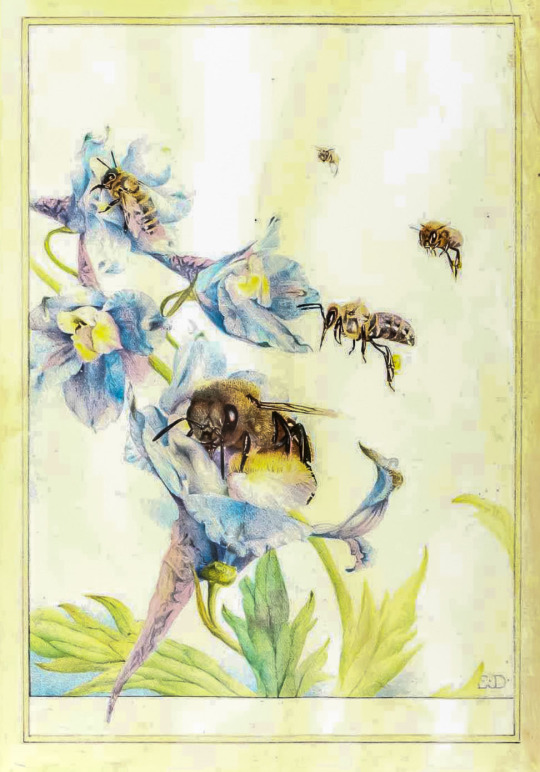


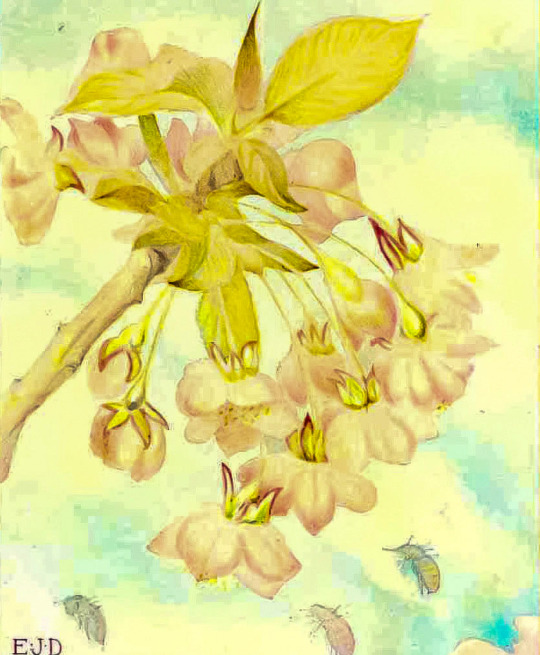

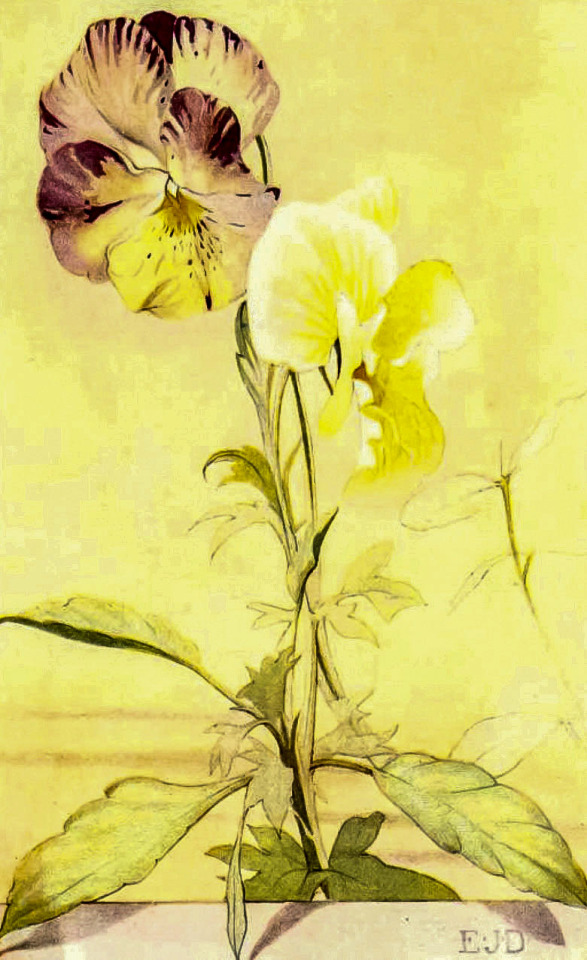
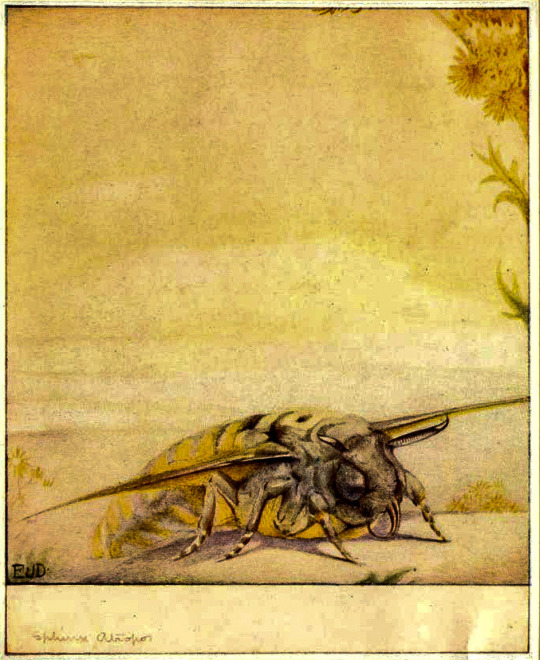

source
#beautiful books#book blog#books books books#book cover#books#vintage books#illustrated book#edwardian books#bees#maurice maeterlinck#alfred sutro#apiary#edward detmold#book design
143 notes
·
View notes
Text

“When we lose one we love, our bitterest tears are called forth by the memory of hours when we loved not enough.”
— Maurice Maeterlinck
#maurice maeterlinck#literature#lit#literature lover#literature quote#literature quotes#philosophy#philosophical#philosopher#philosophers#philosophy of life#philosophy quote#philosophy quotes#quote#quotes#excerpts#excerpt#quoteoftheday#booklover#book#bookworm#books#booklr#book quotes#book quotations
25 notes
·
View notes
Text
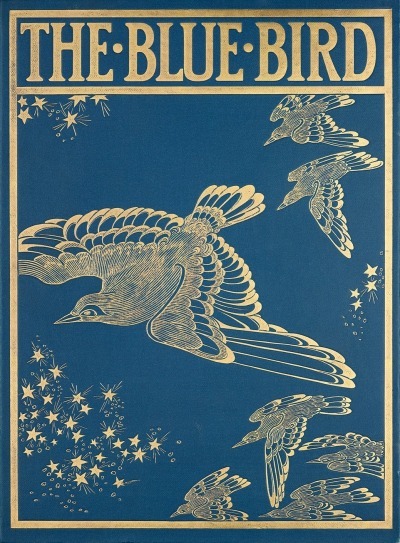
The Blue Bird (French: L'Oiseau bleu) is a 1908 play by Belgian playwright and poet Maurice Maeterlinck.
“I have only my brightness, which Man does not understand…. But I watch over him to the end of his days…. Never forget that I am speaking to you in every spreading moonbeam, in every twinkling star, in every dawn that rises, in every lamp that is lit, in every good and bright thought of your soul…”
Maurice Maeterlinck, The Blue Bird
#maurice maeterlinck#belgian literature#books#classic books#reading#books and reading#quotes#quote#inspiring quotes#life quotes#quoteoftheday#inspirational quotes#booklr#bookish#classic literature#literature quotes#bibliophile#books and libraries#lit#prose#spilled ink#book recommendations#literature#words#writers and poets#writing
33 notes
·
View notes
Text
I have a 100 year old book!
This is part "look at this cool thing i got!!" and part "If you know anything about old books, please help me out, I do not know how to take care of this properly and i am scared of damaging it"
The other day I went with my mom to an antiques shop where she had an appointment to sell some old clothes we'd gotten from my grandma. While she was talking to the shop owner, I wandered around the shop and found a shelf of old books.
One of them caught my eye. It looked very old, in a charming way, like a book I usually wouldn't be allowed to touch but had always wanted to. It was sandwiched between some much more modern books with glossy covers. I pulled it off the shelf and opened it very gently, because the spine looked a little damaged.
It was an English translation of two French plays, "Pelleas and Melisanda" and "The Sightless," by Maurice Maeterlinck. I flipped to the front and read the first page, which was a translator's note:

Transcription:
To the reader. The following translations were undertaken for a twofold reason, and that a selfish one: because it is joy to live awhile very close to the thought of another, when that other is a light-giver: because it is joy to place within the reach of certain of one's fellows what one believes to be admirable and good. Yet, in offering to those who have not read the original, an English version of two of Maurice Maeterlinck's plays, I feel as one that, having marvelled at a rose in the garden, should poorly fashion its image in paper to give to his friend. —I should have preferred to place the volume in your hands without so much as a word of apology for its many obvious and more or less inevitable shortcomings; but the laws of the "Scott Library" forbid the silence I desire, and oblige me to add a few prefactory words.
This is just....so earnest, and so beautifully worded. It touched me immediately that the translator (whose name was Laurence Alma Tadema) described taking such joy in their work of translating the words of someone they admired, and feeling as if they could never fully capture the original brilliance.
I flipped back to the beginning of the book, to try to glean some hint of how old it was. I wasn't sure if it would have a page at the beginning with Library of Congress and copyright info, like modern books do, and it didn't surprise me when it didn't. But what I did find, on the inside cover, was this:
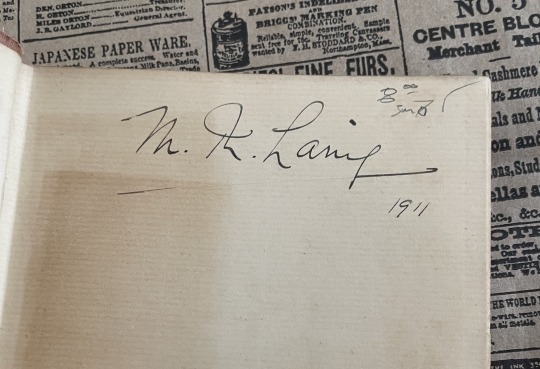
A signature from someone whose first initial was M, although the rest is hard to read—the best guess that discord friends and i have been able to come up with is the last name Lainy, but please help me out if you have any clue what the middle initial could be—which is dated 1911.
I'm writing this post in 2023, so when i saw that signature I realized that this book was at least 112 years old, and definitely the oldest book I'd ever held in my hands.
I don't go to a lot of antiques stores. I'm sure that finding something this old is a lot more commonplace than it feels like to me. But I had a moment of complete awe and reverence in the back of this antique store, okay. The feeling of connection with the translator who had described their work as a paper imitation of a rose was suddenly a connection I'd had with a person who lived over a century ago, and another connection with someone who had owned this exact book and signed their name inside in 1911. It blew me away a little.
I flipped carefully through the pages, read a few lines of the plays (which seemed lovely, at a glance), and then put the book back on the shelf. Because what was i going to do with a 112 year old book of translated French plays?
I wandered around the store a little more and then came back to the bookshelf. Picked the book up again. Flipped through it. Stared at the signature on the first page. Put it back again.
Repeated that at least two more times, attempting to convince myself that i did not need this book, and it was very old and fragile and it's not like i could just stick it on my bookshelf between a couple of YA novels, and it was just a couple of dusty plays that i probably wouldn't ever read, and we were technically there before the shop was open for our selling appointment and I didn't know if the shop lady would even sell it to me, and I did not need to own a 112 year old book.
And then my mom was finished with the shop owner, and asked me if I wanted to buy the book I'd been holding and staring at for the last several minutes, and I said "I'd like to, if I can" because despite my attempts to convince myself otherwise I was going to be heartbroken if I did not walk out of there with that book.
The antiques shop lady did indeed sell it to me, for eight dollars.
So now I have a very old book.
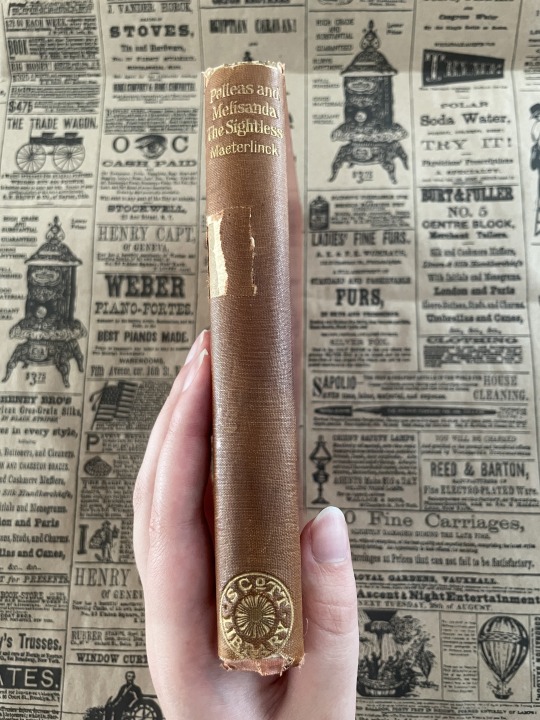





I asked the shop owner what I should do to avoid damaging it, and she told me to keep it out of the sun and never store it in plastic. I am under no impression that this book holds significant monetary or cultural value, but it's still a piece of history and I would like to keep it safe. I'd also like to read more of it, if I can, although I have yet to do more than open it partway and flip through a few pages, because I'm worried about the spine. People on tumblr who know about old books, please share any other knowledge or advice you might have!
I'm still not sure exactly why I bought this, but it brings me a lot of joy to hold in my hands, and I think that was a good enough reason.
#stars has thoughts#old books#antique#is there perhaps a tag i can use to summon librarian tumblr without being rude#Maurice Maeterlinck#pelleas and melisanda#the sightless#translation#long post#undescribed
112 notes
·
View notes
Text

“Si les astres étaient immobiles, le temps et l'espace n'existeraient plus.” 🌕🪐⭐️
Maurice Maeterlinck
Gif de Nikita Ermakov
#gif animé#nikita ermakov#illustration#astres#espace#quotes#maurice maeterlinck#planets#ciel#funny pics#fidjie fidjie
26 notes
·
View notes
Text

Carlos Schwabe, Pelleas and Melisande
22 notes
·
View notes
Text
youtube
#MOVIES!!!#The Blue Bird#Maurice Tourneur#silent movie#fantasy#based on#Maurice Maeterlinck#play of same name#Youtube
3 notes
·
View notes
Text
1426- La desesperanza está fundada en lo que sabemos, que es nada. Y la esperanza sobre lo que ignoramos, que es todo.
(Maurice Maeterlinck)
#palabras#frases#textos#textos nocturnos#pensamientos#escritos de amor#vida#culture#books & libraries#amor#desesperanza#esperanza#vivir#tiempo#pensamiento#maurice maeterlinck#escritores#poemas#escritora#literatura#letras
11 notes
·
View notes
Text
I have only my brightness, which Man does not understand…. But I watch over him to the end of his days…. Never forget that I am speaking to you in every spreading moonbeam, in every twinkling star, in every dawn that rises, in every lamp that is lit, in every good and bright thought of your soul…
Maurice Maeterlinck, The Blue Bird
15 notes
·
View notes
Text

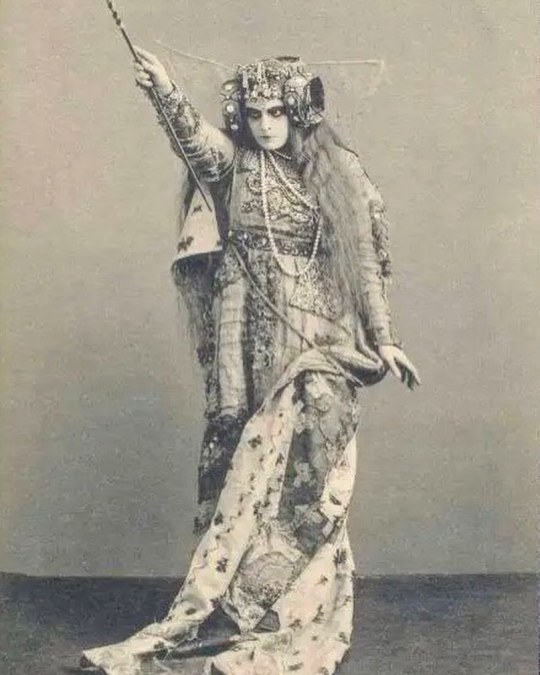
Vladimir Boltin as Sugar with Alisa Koonen as Mytyl, Yelena Murativa as Night; Konstantin Stanislavski’s The Blue Bird, written by Maurice Maeterlinck.
#blue bird#the blue bird#Vladimir Boltin#Alisa Koonen#Yelena Murativa#Konstantin Stanislavski#Maurice Maeterlinck
24 notes
·
View notes
Text

NEWS OF SPRING by Maurice Maeterlinck. (New York: Dodd Mead, 1917) Illustrated by Edward Detmold.








source
#beautiful books#book blog#books books books#book cover#books#vintage books#illustrated book#maurice maeterlinck#edward detmold#flowers#wild birds#edwardian books#book design#book publishing
87 notes
·
View notes
Photo








Le rire de ma mère (Colombe Savignac, Pascal Ralite, 2017)
#Le rire de ma mère#drama film#french cinema#family#love#Colombe Savignac#Pascal Ralite#Belgique#Belgium#youth#Suzanne Clément#Pascal Demolon#cancer#divorced parents#comédie dramatique#motherhood#fatherhood#brotherhood#My mother's laugh#stepmother#classmates#grandparents#coming of age film#relationships#Europe#European society#Maurice Maeterlinck#L'Oiseau bleu#Igor Van Dessel#life
3 notes
·
View notes
Text
"The decent moderation of today will be the least of human things tomorrow. At the time of the Spanish Inquisition, the opinion of good sense and of the good medium was certainly that people ought not to burn too large a number of heretics; extreme and unreasonable opinion obviously demanded that they should burn none at all."
Maurice Maeterlinck, poet, dramatist, and Nobel laureate (29th August 1862-1949)
2 notes
·
View notes
Text

2 notes
·
View notes